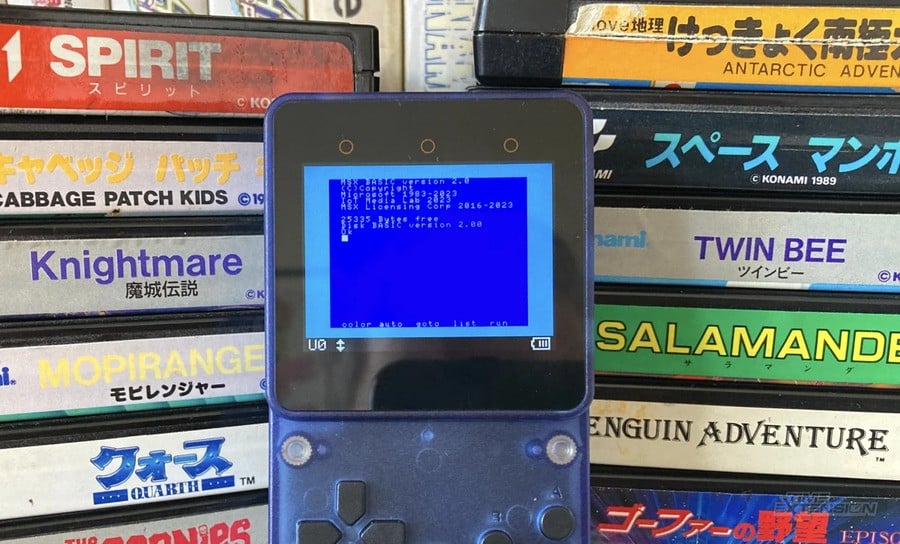
If you're familiar at all with the MSX story, Kazuhiko Nishi is a name that you've probably encountered in the past.
Not only was he the founder of ASCII — the company that launched MSX in partnership with Microsoft — but he was also one of the project's co-creators, working on the plans for the unified computing standard and being responsible for its initial marketing and introduction in Japan.
In more recent years, he has continued to wave the flag for MSX and interact with members of the wider MSX community, notably releasing a bunch of new MSX-related products, such as the MSX0 Stack.
However, as he revealed back in March 2023, he has been doing all of this while going through bankruptcy proceedings in Japan — a situation that reportedly arose from bad debts he inherited from his departure from ASCII, and his decision to sign on as a guarantor for a friend's business loan.
The reason we bring all this up now is that, on Twitter/X, recently, Nishi offered an update on the situation, stating that these proceedings had now ended and that his debt (believed to total 11.5 billion yen) has now been discharged. As a result, he now aims to pay back this exemption in another way, dedicating his life to education, through the launch of a new organization called the Japan Advanced Institute of Technology (tentative name) and through donating 20% of his personal income to support students and teachers.
In a statement, written in Japanese, Nishi stated more on why he has taken this decision, explaining that "when you can be arrested for shoplifting a 150 yen rice ball from a convenience store" in Japan it is simply "unforgivable" to default on a debt of 11.5 billion yen.
So, while he can no longer pay back his debtors, he intends to pay back the Japanese government's leniency by these other methods.
Nishi has mentioned the Japan Advanced Institute of Technology a few times in the past on social media. From what we can gather, he intends for it to include a home computer museum, as well as a reference library of books, which will be open to university students and researchers.
